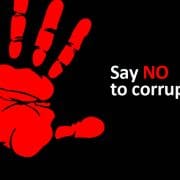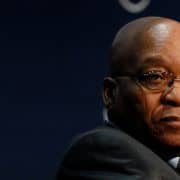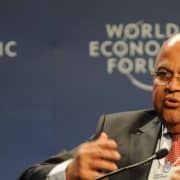|
Getting your Trinity Audio player ready...
|
By Moepeng Valencia Talane – CW Voices
“The ANC has completed its consolidation of the framework on the integrity commission, thus paving the way for accelerated and beyond-reproach implementation of processes to uphold the integrity of the organisation.”
ANC secretary-general Fikile Mbalula said this at the press briefing that followed the ANC NEC meeting in Ekurhuleni last week. It was a briefing meant to address the deliberations and conclusions that the party’s leadership structure arrived at over the course of discussions.
The news of the review of the commission’s terms of reference was expected, but it would not have surprised many if, as the saying goes, the more things change the more they stay the same. Mbalula told the media that about 90 of the party’s members had been implicated in state capture and would at some point or other have to face the commission but was quick to add that he would not be able to speak to individual cases for purposes of the briefing as the NEC meeting had not gone through those.
In other words, he was not in a position to talk to the media about recent allegations of corruption levelled against deputy president Paul Mashatile and higher education minister Blade Nzimande, among others. Fair enough, provided that the integrity committee overseeing the commission would talk about them, and follow the requisite protocols as guided by the new NEC guidelines.
Another notable Mbalula announcement was that the party’s candidate list for the new NEC that will be effected by the upcoming elections would be finalised by the middle of February. The critical question on that point is, will the 90 in question be left out of that process, or will the ANC do as it had always done and decide on an NEC that makes sense to the party more than it does to members of the public?
Foxes guarding the henhouse
The ANC’s integrity commission is an initiative that came out of its 2012 elective conference, held in Mangaung. It was described as a mechanism of accountability that would be housed within the NEC structure, with members constituting the committee in charge of it.
Corruption Watch at the time raised the red flag of the inclusion of a number of compromised members to the then NEC, citing the potentially flawed processes informing the commission’s establishment. The same pattern has followed in the 12 years to date, with many public commentators highlighting the failure of the party to squash the stigma that dogged its own attempt at accountability within its structures.
The committee is currently chaired by Frank Chikane, a long-standing member of the party with a sterling public service track record. Being one of the faces of integrity and good moral standing in the party, he was announced for the role early in 2023, and through media reports on the internal processes of the ANC, appears to have been trying to reinvent the commission as one that will finally work.
It may well be that the party’s renewal project has taken on a newly invigorated spirit of seeking accountability, possibly inspired by the Zondo commission and its findings against it. The step-aside regulation has been described as being burdened with political motive in certain cases, including that of Mbalula’s predecessor Ace Magashule, who was suspended after being charged with corruption, and later expelled from the party. One of the notable adjustments to the commission’s guidelines is that members under its investigation may not dodge its processes by citing criminal prosecution as a reason.
Chikane’s now-famous quote following his appointment as chair of the integrity committee – that he is “not ready to be governed by criminals” – comes to mind at this integral moment in the ANC’s future. While the party claims in public statements not to be concerned about losing its majority hold at the polls later this year, it has come under immense scrutiny from the public. From major institutional governance flaws to the collapse of service delivery structures in the supply of water, electricity, and transport, among others, the political landscape has shifted incredibly to include what is probably the largest addition to the national election ballot in years.
It is only in the strengthening of its own internal accountability mechanism – one of its own making – and the decisive management of the corruption crisis within its top ranks, that the party will be able to truly convince the voting millions of its renewal. An NEC list free of the compromised elements, clearly displaying the “beyond-reproach” actions that Mbalula speaks of, will go some way in restoring faith in the party. After all, it is those occupying the NEC seats who will more likely than not serve in the next administration.
Five years is a long time to be stuck with the same flaws from the ruling party.








